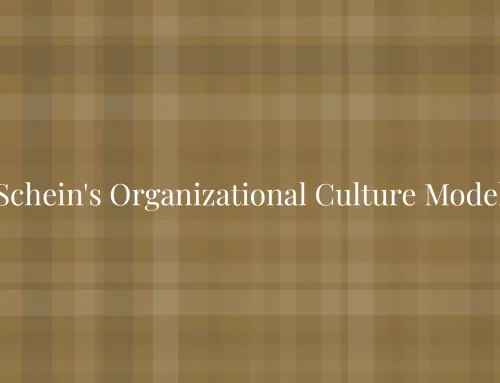Organizational culture plays a crucial role in shaping the behavior, values, and norms within an organization. It encompasses the shared beliefs, attitudes, and assumptions that guide employees’ actions and decisions.
Organizational Culture
Organizational culture refers to the shared values, beliefs, norms, and behaviors that exist within an organization and shape its collective identity, interactions, and work environment. It represents the way things are done in an organization and influences employee attitudes, decision-making, and overall organizational performance.
It is the collective identity of an organization, encompassing its vision, mission, norms, rituals, and social practices. Organizational culture influences how employees perceive their work environment, interact with colleagues, and approach tasks. A strong and positive culture can foster employee engagement, innovation, and organizational success, while a negative culture can hinder productivity and hinder growth.
Employee Engagement and Productivity
Organizational culture has a direct influence on employee engagement and productivity. A positive and inclusive culture fosters a sense of belonging and commitment among employees, leading to higher job satisfaction and motivation. When employees feel valued and supported, they are more likely to go the extra mile, contribute innovative ideas, and deliver high-quality work.
Talent Attraction And Retention
Culture plays a crucial role in attracting and retaining top talent. Job seekers often look for organizations whose culture aligns with their values and work preferences. A strong organizational culture that promotes a healthy work-life balance, provides opportunities for growth and development, and fosters a positive and collaborative environment becomes a magnet for skilled professionals. It helps create a competitive advantage in attracting and retaining the best talent in the industry.
Employee Well-Being And Mental Health
A supportive and healthy organizational culture prioritizes employee well-being and mental health. By fostering a positive work environment, organizations can reduce stress, burnout, and absenteeism. When employees feel supported, valued, and empowered, they experience higher levels of job satisfaction, improved mental health, and better work-life integration.
Innovation And Adaptability
Organizational culture plays a critical role in driving innovation and adaptability. A culture that encourages experimentation, risk-taking, and learning from failures creates an environment conducive to innovation. Employees are more likely to propose new ideas, challenge the status quo, and embrace change when they feel psychologically safe and supported by the organizational culture. This enables organizations to stay agile, respond to market trends, and remain competitive in a rapidly evolving business landscape.
Organizational Alignment and Performance
A strong organizational culture fosters alignment and coherence among employees. When everyone shares common values, goals, and norms, it leads to better coordination, collaboration, and teamwork. The shared understanding of the organization’s mission and vision guides employees’ actions and decisions, resulting in improved performance and achievement of organizational goals.
Customer Experience And Satisfaction
Organizational culture has a significant impact on customer experience and satisfaction. A customer-centric culture that values and prioritizes customer needs creates a positive service environment. Employees who are aligned with the organization’s culture are more likely to provide exceptional customer service, anticipate customer needs, and build long-term relationships. This leads to higher customer satisfaction, loyalty, and positive brand reputation.
Change Management And Transformation
In times of change and transformation, organizational culture becomes even more critical. A strong culture helps navigate change, reduces resistance, and facilitates successful implementation. When employees trust the organization and its values, they are more likely to embrace change initiatives, adapt to new ways of working, and support the transformation process. Organizational culture becomes the foundation for change management, ensuring a smooth transition and minimizing disruptions.
Corporate Social Responsibility
Organizational culture sets the tone for ethical behavior and corporate social responsibility. A culture that promotes integrity, transparency, and ethical conduct creates a strong ethical framework within the organization. Employees are more likely to adhere to ethical standards, make responsible business decisions, and act in the best interest of stakeholders. This enhances the organization’s reputation and builds trust with customers, partners, and the wider community.
Strategies
To leverage the importance of organizational culture, organizations should focus on several key strategies:
Define And Communicate Core Values
Clearly articulate the organization’s core values and ensure they are effectively communicated to all employees. This sets the foundation for the desired culture and helps align behaviors and decision-making.
Lead By Example
Leaders play a critical role in shaping and reinforcing organizational culture. They should embody the desired culture through their actions, behaviors, and decision-making. When leaders consistently demonstrate and reinforce cultural values, it establishes a powerful influence on employees.
Foster Open Communication
Establish channels for open and transparent communication throughout the organization. Encourage employees to share their ideas, concerns, and feedback, creating a culture of trust and collaboration. Effective communication helps build strong relationships, resolves conflicts, and promotes a sense of belonging.
Develop Employee Engagement Initiatives
Implement programs and initiatives that enhance employee engagement and promote a positive work culture. This may include opportunities for skill development, recognition and rewards programs, employee well-being initiatives, and fostering a supportive work environment.
Support Learning And Development
Foster a learning culture that encourages continuous growth and development. Provide resources, training, and opportunities for employees to acquire new skills and knowledge. This promotes innovation, adaptability, and keeps employees engaged and motivated.
Embed Culture In HR Processes
Align HR practices, such as recruitment, performance management, and employee development, with the desired culture. Incorporate cultural fit assessments in the hiring process and recognize and reward behaviors that align with the culture.
Continuously Assess And Evolve
Regularly assess the existing culture and identify areas for improvement. Solicit feedback from employees, conduct cultural assessments, and measure cultural alignment with organizational goals. Use these insights to make necessary adjustments and reinforce positive aspects of the culture.
By recognizing the importance of organizational culture and actively nurturing it, organizations can create a competitive advantage, improve employee satisfaction and performance, and drive sustainable growth. It requires a commitment from leaders at all levels to champion the desired culture and consistently reinforce cultural values. With a strong and positive culture, organizations can thrive in today’s dynamic and complex business environment.
To harness the power of organizational culture, leaders must actively shape and reinforce the desired values, norms, and behaviors. They should lead by example, communicate effectively, and create an environment of trust and open communication. Employee engagement initiatives, learning and development programs, and embedding culture into HR processes are also essential.
Regular assessments and continuous improvement are key to maintaining a strong culture. Organizations must be willing to evolve and adapt their culture to meet changing needs and challenges. By investing in organizational culture, companies can create a positive and productive work environment, drive sustainable growth, and achieve long-term success.
Case Study – Microsoft’s Cultural Transformation
In 2014, Satya Nadella took the helm as CEO of Microsoft, inheriting a company facing significant challenges in the rapidly evolving tech industry. Recognizing the need for cultural transformation, Nadella embarked on a journey to reshape Microsoft’s culture and drive innovation and growth.
Before Nadella’s appointment, Microsoft had a reputation for being hierarchical, inward-focused, and resistant to change. The company’s culture hindered collaboration, innovation, and its ability to compete effectively in the fast-paced tech landscape. Nadella recognized the importance of reshaping the company’s culture to foster a growth mindset, empower employees, and align with Microsoft’s mission of empowering every person and every organization on the planet to achieve more.
Growth Mindset
One of the fundamental elements of Microsoft’s cultural transformation was the adoption of a growth mindset. Nadella emphasized the need for employees to embrace continuous learning, take risks, and see failures as opportunities for growth. He encouraged employees to shift from a fixed mindset that avoided risks and change to one that embraced experimentation and learning from failures.
Empowering Leadership
Nadella believed in empowering leaders at all levels of the organization. He promoted a culture of inclusion and collaboration, where diverse perspectives were valued and encouraged. This shift in leadership approach helped break down silos, fostered cross-functional collaboration, and promoted a sense of ownership and accountability among employees.
Customer-Centricity
Nadella prioritized a customer-centric approach and instilled a deep focus on understanding customer needs and delivering value. He urged employees to listen to customers, adapt to their changing demands, and build products and services that truly meet their needs. This customer obsession drove a cultural shift toward innovation and agility.
Openness And Collaboration
Microsoft’s cultural transformation under Nadella also emphasized openness and collaboration. He encouraged teams to share ideas, knowledge, and resources across departments, breaking down internal barriers. The One Microsoft philosophy aimed to foster a culture of collaboration and collective success, enabling employees to work together towards shared goals.
Embracing Diversity And Inclusion
Nadella placed a strong emphasis on diversity and inclusion as a core component of Microsoft’s culture. He recognized the importance of diverse perspectives and experiences in driving innovation and understanding global markets. Microsoft implemented initiatives to increase diversity in hiring, support employee resource groups, and foster an inclusive work environment.
Agility And Innovation
To compete effectively in the fast-paced tech industry, Nadella fostered a culture of agility and innovation. He encouraged employees to experiment, take calculated risks, and embrace disruptive technologies. Microsoft shifted its focus from a know-it-all attitude to a learn-it-all mindset, embracing new ideas and approaches to stay ahead of the curve.
Results And Impact
Microsoft’s cultural transformation under Satya Nadella’s leadership has yielded significant results. The company’s market value has more than tripled since Nadella took over as CEO. Employee satisfaction and engagement have increased, and Microsoft has regained its position as a leader in the tech industry.
The cultural shift has enabled Microsoft to drive innovation and adapt to changing market dynamics. The company has embraced cloud computing, artificial intelligence, and other emerging technologies, positioning itself as a major player in these areas. The shift toward a growth mindset, customer-centricity, and collaboration has resulted in the successful development and launch of new products and services.




